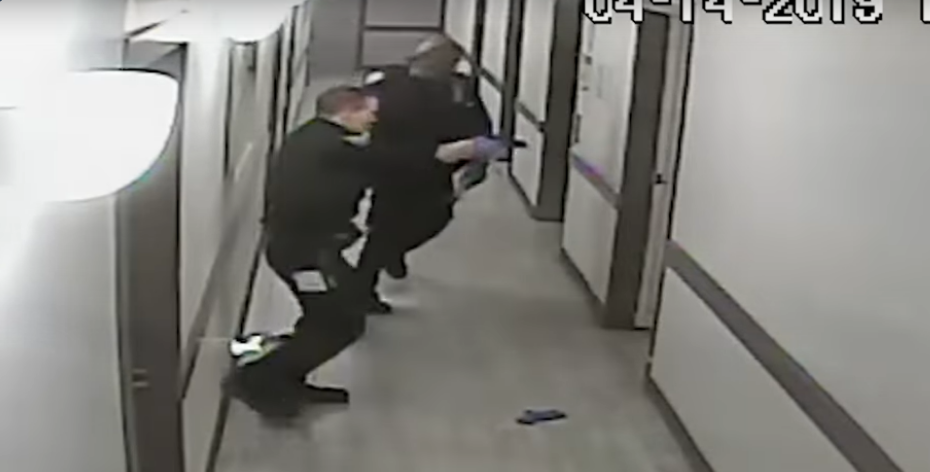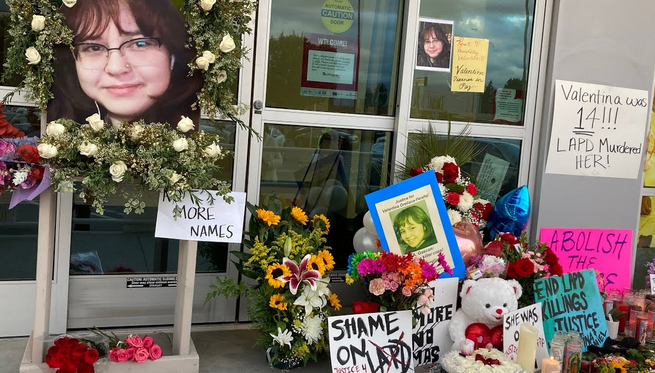As we feared, public gatherings have been banned, and it is likely that Gen. Museveni and his lackeys in the security services will wave the security card like a preacher does the Bible, to frustrate opposition gatherings and political organizing.
[Terror And Dictatorship]
Double Damage–Innocents Die, Democratization Threatened
No politician has been quite as lucky as Gen. Yoweri Kaguta Museveni, the president of Uganda.
When Gen. Museveni, a self-described Marxist-Leninist came to power in 1986, the cold war was coming to an end and his omufumu — seer — had clear forebodings of the ripples of glasnost and perestroika.
The good student he has always been, the lanky guerrilla fighter subsequently disowned Marx and Lenin, and prostrated at the feet of economist Milton Friedman, even before the dust from the crumbling Berlin Wall settled.
From the onset of his takeover of Uganda, Gen. Museveni was toasted in Western capitals as captain of a “new breed” of African leaders–it was pure fiction.
Western support and praise of Gen. Museveni went on even as he banned political parties and ruled by decree, brutalized his own citizens in northern and eastern Uganda — and invaded Congo — committing grave war crimes for which the International Court of Justice (ICJ) found Uganda liable in 2005, awarding $10 billion in reparations to DR Congo.
Just as Gen. Museveni was on the verge of being exposed for excesses at home and adventurism abroad, providence came his way when Osama bin Laden and Al Qaeda gave the world 9/11. Sensing the opportunity, he jumped on the bandwagon, as Africa’s only member of “the coalition of the willing,” joining in the US war on terror championed by George W. Bush.
Several years on, Gen. Museveni’s fortunes once again seemed to crest. Less than a week ago, I was discussing with friends how the only place left for Gen. Museveni and his National Resistance Movement (NRM) ruling party to go, is down and out. This was in respect to the encirclement of the regime both internally and internationally.
Internally, the revival of nationalist political parties like the Uganda Peoples Congress (UPC) and the Democratic Party (DP) with strong, new leadership that is steadily reclaiming their national memberships and reenergizing their historical social bases, has given the NRM serious political gripes.
In addition, protest parties and social justice movements such as the Forum for Democratic Change (FDC), People’s Progressive Party (PPP), Conservative Party (CP), Justice Forum (JEEMA), and SUUBI 2011, are also effectively consolidating opposition support. Consequently, Gen. Museveni and the NRM have lost significant grounds throughout the country.
High-level corruption, embezzlement of public funds, repression, increasing criticism and nearly a quarter century of iron-fisted rule have faded the luster of Washington’s former “golden boy” and significantly diminished his stature internationally.
Furthermore, the push for free and fair elections, which has galvanized a critical mass in the country, has meant that Gen. Museveni no longer enjoys what UPC’s President and former United Nations UnderSecretary General Olara Otunnu terms “scandalous exceptionalism” in his treatment by the international community.
Consequently, Uganda is being held to the same international standards that other countries in Africa and elsewhere have been subjected to.
The unprecedented US Congressional Directive on Uganda’s upcoming elections which mandates the US Secretary of State to closely monitor and report on Uganda’s compliance with internationally accepted benchmarks for free and fair elections, is indicative of the closing loop surrounding around Gen. Museveni and the NRM regime.
Before the alleged terrorist strikes in Kampala on 11th July 2010, Gen. Museveni and the NRM seemed in serious political trouble preceding the 2011 elections.
The conjunction of internal and external political and diplomatic mobilizations by opposition parties and civil society organizations — particularly by UPC’s Otunnu — had exposed Gen. Museveni as a paper tiger; a vulnerable brute with clay legs. Then the tragic terror attack. And over 70 young lives of our fellow citizens had been snuffed out!
Perversely, the catastrophic bombing seems like the godsend opportunity Gen. Museveni and the NRM had been praying for. Cornered internally and increasingly isolated internationally, they needed a miraculous lifeline.
If indeed Al Shabab perpetrated the deed as alleged, they injured Ugandans twice.
First, they murdered our citizens in cold blood. And as if that was not bad enough, they handed Gen. Museveni and the disgraceful, corrupt NRM lot a likely political lifeline, which the NRM will use maximally to continue to defraud and brutalize Ugandans.
As we feared, public gatherings have been banned, and it is likely that Gen. Museveni and his lackeys in the security services will wave the security card like a preacher does the Bible, to frustrate opposition gatherings and political organizing.
Late last year, I wrote about how Gen. Museveni could yet survive encirclement by the combined opposition. I pointed out that Somalia remains one of the cards he could eventually manipulate to buy for himself international diplomatic protection by powerful countries with vested interests in the Horn and Great Lakes regions of Africa.
As fate or conspiracy would have it, Uganda’s political trajectory from the terrorist strikes in Kampala remains of serious interest to Uganda watchers and democracy seeking constituencies.
The question on their and our lips is: Will Gen. Museveni seize the occasion and wrap himself in the Ugandan flag and give a heave-ho to civil liberties and freedoms, as well as the forthcoming elections in the name of fighting terrorism and ensuring the safety of our citizens?
If one were as politically wounded and cornered as Gen. Museveni is, moving forward would be as daunting as going backwards — having trampled on so many on the way up, one would be forced to tread gingerly on the way down — with the strong temptation not to go down alone, but with as many as possible.
With three powerful political parties gnawing at his backside, flank and neck, and an international community sold on the need for free and fair elections breathing down his throat, Gen. Museveni must pick his options carefully.
Gen. Museveni knows that he cannot win on the question of free and fair elections, and the need to disband the current electoral commission. The dilemma he faces is how the NRM rank and file would feel, if he were to act swiftly to comply with the popular demand to dismantle his incompetent, self-appointed, and discredited electoral commission.
It is likely that Gen. Museveni is simply waiting and biding his time, hoping to delay the sacking of Badru Kiggundu, head of the current electoral commission, and the other commissioners for as long as possible — with the aim of making the change as close to the elections as possible.
Gen. Museveni’s tactics of delay are an effort to prevent the collapse of the NRM too early, because once he is perceived as a tired old lion who is being mauled by the new younger males on the plains, many NRM bigwigs and supporters would scamper off the bus, abandoning the ruling party in droves.
By stalling on any action on the electoral commission, Gen. Museveni presumably hopes that some cataclysmic world or local event such as 7/11, might rescue him from the humiliation he would undoubtedly suffer in the eyes of NRM rank and file who have until now regarded him as God’s indomitable deputy on earth.
Keeping the NRM hoi polloi in the dark makes them still fight with unwavering zeal and undiminished expectations of bountiful rewards. But you can bet that the generals and senior NRM with blood ties to the Luwero war have been carefully briefed — they know they may still fight more battles — but the war is lost.
As UPC’s President recently said, as a country we must get to the bottom of the events of 7/11.
http://beta.wnyc.org/shows/bl/2010/jul/16/ugandan-violence
The UPC is a Pan-African Party, and we believe the principle of our involvement as a country in Somalia is noble and our country must discharge its regional and international obligations honorably.
However, we are troubled that despite repeated warnings, our security services failed to prevent the tragedy of 7/11. The Rapid Response Unit (RRU) of the police have a reputation for tailing and executing suspected robbers even when they were merely in the midst of contemplating, planning and traveling to carry out their crimes.
How difficult could it have been for such a highly trained unit to identify and take out of action any Al Shabab elements who would have found it very difficult to blend in with the general population?
Gen. Museveni and the NRM must be warned: they are not going to exploit our insecurities to trample on the civil liberties and freedoms of Ugandans. Make no mistake about it; the era of impunity is over.
Okello Lucima is an aide in the UPC President’s office.
“Speaking Truth To Empower.”











